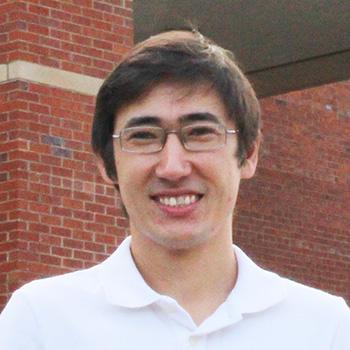
Askar Kazbekov
What is your next adventure?
I just started my next adventure, which is working full-time at Rocket Lab, located in California, as a propulsion engineer where I am designing rocket engines for the next generation of spacecraft.
What about your next adventure are you most looking forward to?
It’s something I’ve wanted to do since I was a little child, so I’m excited to be doing what I love. The most exciting part for me is making and designing brand new rockets. At Rocket Lab, we are pushing the boundaries of space and furthering human space exploration which is exciting.
Did you have any previous co-op, internship, or research experience in this area?
I had two internships at SpaceX. The first one was a one year-long internship while I was in undergrad (University of Toronto) where I worked on research and development (R&D) of various propulsion components. My second internship with SpaceX was prior to starting my master’s at the University of Toronto. For my second stint, I worked with the propulsion analysis group, performing structural, fluids, and thermal analysis of the propulsion systems. As a Tech doctoral student, I’ve been researching at the Ben T. Zinn Combustion lab with Dr. Adam Steinberg. My work specifically was in turbulent combustion, which is a phenomenon that commonly occurs in aeronautical gas turbine and rocket engines. My research aims to understand the physics of this phenomenon, and is directly applicable to my current work.
How did your educational experience at Georgia Tech help you to achieve your goals?
I was pleasantly surprised that the AE School at Georgia Tech offers such a wide selection of graduate-level courses. I was able to take classes that are not readily available elsewhere and learn from the professors who are passionate about the field and are able to explain complex concepts in a clear manner. This makes a big difference when learning how to design complex systems like rocket engines.
What advice would you give to an underclassman who would like to follow the same path?
Get involved in something outside of the classroom. Getting involved in extracurricular activities helped me get to know people and build a community as a Ph.D. student. Almost every semester, I was involved in some type of intramural club and would often play in a pickup game of soccer or volleyball at CRC. Also, staying proactive and staying healthy is extremely important for your academic and professional career.
Don’t be afraid to look for opportunities and grab them. Just because you graduate, it doesn’t mean you’ll stop learning. You’ll learn more as you start your career and put your degree to work. I’d encourage people to accept positions that you don’t feel quite qualified for because those opportunities are where you will learn the skills that will be invaluable later in your career, whether it’s in academia, research, or industry.